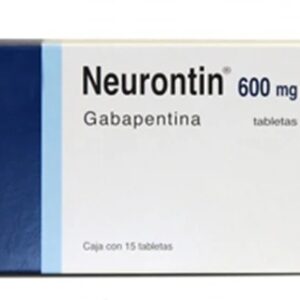Valium, a well-known brand name for diazepam, belongs to the benzodiazepine class of medications, renowned for its anxiolytic, sedative, and muscle relaxant properties. Among the varied dosage strengths available, Valium 5 mg stands out as a versatile option, offering a moderate dose suitable for managing a spectrum of conditions. This article delves into the pharmacological features, therapeutic uses, potential side effects, and considerations surrounding Valium 5 mg, shedding light on its significance in the realm of mental health treatment.
Unpacking Valium 5 mg:
**1. Pharmacological Mechanism:
- Enhancing GABA Effects: Diazepam, the active ingredient in Valium, interacts with gamma-aminobutyric acid (GABA) receptors in the central nervous system. This interaction amplifies the inhibitory effects of GABA, resulting in a calming and relaxing impact on the brain.
2. Therapeutic Indications:
- Anxiety Disorders: Valium 5 mg is often prescribed for the management of various anxiety disorders, including generalized anxiety disorder (GAD) and social anxiety disorder (SAD).
- Muscle Spasms: Its muscle relaxant properties make it effective in alleviating muscle spasms, contributing to its use in conditions involving musculoskeletal tension.
- Adjunctive Treatment: Valium may serve as an adjunctive treatment in specific medical scenarios, such as managing seizures, alleviating symptoms of alcohol withdrawal, or providing preoperative sedation.

3. Dosage Specifics:
- Moderate Strength: Valium 5 mg represents a moderate dosage within the spectrum of available strengths. This allows for flexibility in tailoring treatment to individual needs and mitigating the risk of over-sedation.
4. Onset of Action and Duration:
- Rapid Onset: Valium, known for its relatively rapid onset of action, is valued for providing quick relief during acute episodes of anxiety or muscle spasms.
- Duration of Effect: The effects of Valium typically last for a few hours, necessitating consideration of dosing frequency in treatment planning.
Therapeutic Landscape:
1. Anxiety Management:
- Anxiolytic Effects: Valium 5 mg is a frontline option in the management of anxiety disorders. Its anxiolytic effects contribute to reducing excessive nervousness, tension, and apprehension.
- Short-Term Use: The use of Valium for anxiety is often short-term, aiming to alleviate acute symptoms and facilitate the individual’s ability to cope with stressors.
2. Muscle Spasm Relief:
- Muscle Relaxation: Valium’s muscle relaxant properties make it beneficial in addressing conditions characterized by muscle spasms, such as back pain or certain neurological disorders.
- Enhancing Quality of Life: By reducing musculoskeletal tension, Valium contributes to improved comfort and functionality, enhancing the overall quality of life for individuals dealing with muscle spasms.
3. Adjunctive Seizure Management:
- Anticonvulsant Effects: Valium is used as an adjunctive treatment in managing certain types of seizures. Its anticonvulsant effects contribute to seizure control, often complementing other antiepileptic medications.
- Emergency Situations: Intravenous or rectal administration of diazepam may be employed in emergency situations to halt prolonged or recurrent seizures.
Potential Side Effects:
1. Common Side Effects:
- Sedation and Drowsiness: Valium’s sedative effects can lead to drowsiness and sedation. Individuals are advised to exercise caution when engaging in activities requiring mental alertness.
- Muscle Weakness: Some users may experience muscle weakness, particularly at higher doses.
2. Serious Side Effects:
- Respiratory Depression: In rare instances, Valium may cause respiratory depression, especially when combined with other central nervous system depressants.
- Dependence and Withdrawal: Prolonged use of Valium, even at 5 mg, may lead to dependence, and abrupt discontinuation can result in withdrawal symptoms.
3. Interaction with Other Substances:
- Drug Interactions: Valium can interact with various medications, including antidepressants, antipsychotics, and opioids. Informing healthcare providers about all medications and substances being used is essential to avoid potential interactions.
Striking the Right Balance:
1. Short-Term vs. Long-Term Use:
- Immediate Relief vs. Dependence Risk: Valium 5 mg is often employed for immediate relief during acute episodes. However, due to the risk of dependence and tolerance, long-term use is approached cautiously.
- Gradual Tapering: When discontinuation becomes necessary, a gradual tapering schedule is often recommended to mitigate withdrawal symptoms.
2. Individualized Treatment Plans:
- Tailored Approaches: Healthcare providers strive to develop individualized treatment plans, considering factors such as the nature and severity of the condition, the individual’s response to the medication, and any coexisting health concerns.
- Periodic Assessments: Regular follow-up assessments are crucial to evaluate the ongoing effectiveness of Valium 5 mg and make any necessary adjustments.





Reviews
There are no reviews yet.